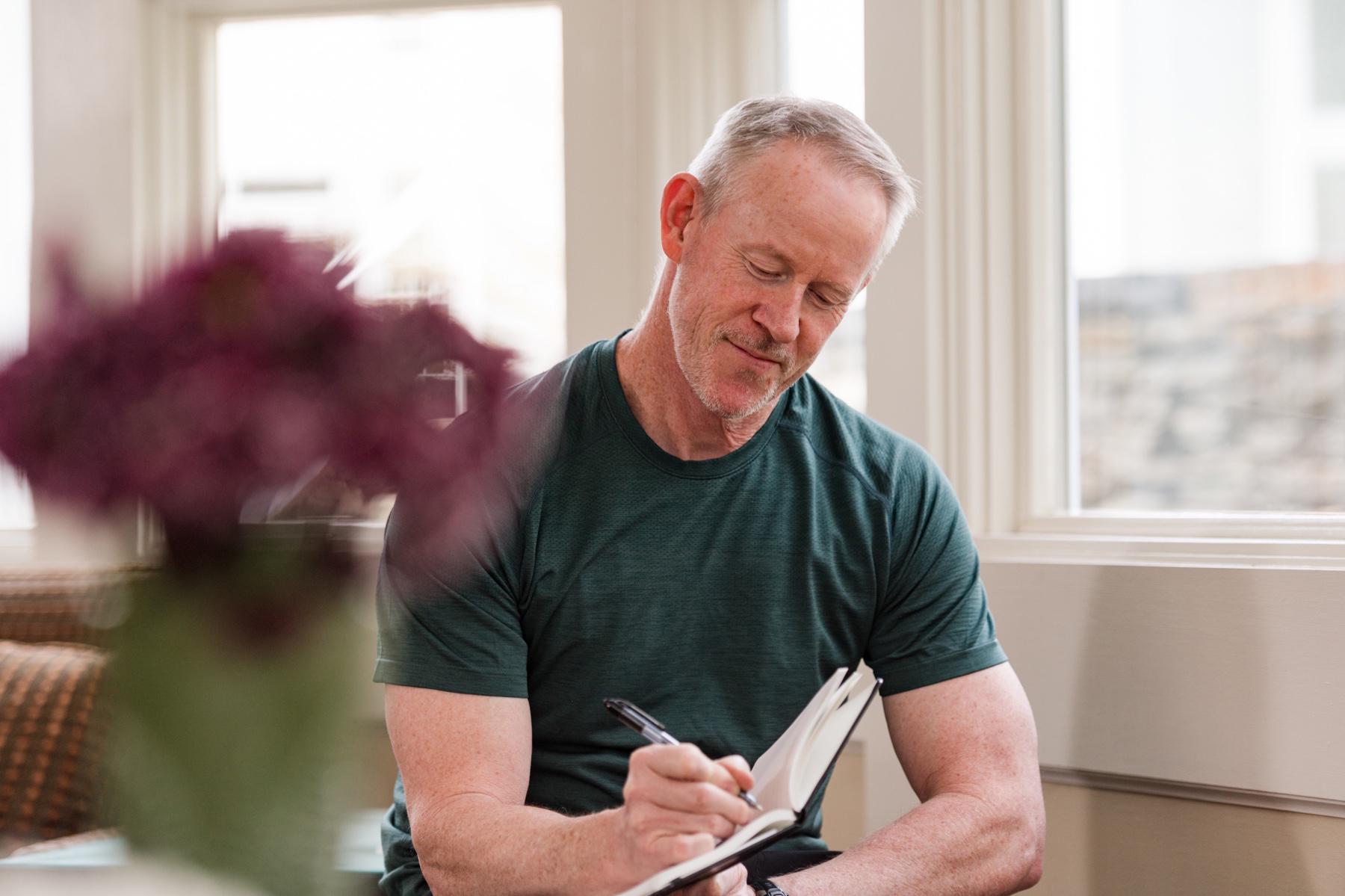The Science of Burnout: A Q&A with Dr. Laurie Santos
Nov 13 2025 ・ 7 min read
Discover what burnout really is, why it happens, and how science-backed strategies can help you restore balance, connection, and joy.
Feeling burned out? You’re not alone. To understand the science, signs, and solutions, we spoke with Dr. Laurie Santos — professor of the most popular class in Yale’s history, host of “The Happiness Lab” podcast, and creator of “The Science of Well-Being" on Coursera. You’ll also find her as a special guest expert at our Beat Burnout retreats, taking place Jan. 29–Feb. 1.
Below, dive into Dr. Santos’ powerful insights on how to identify burnout, practices for prevention, and more.
How do you define burnout?
Burnout is more than just feeling tired. It’s a chronic state of emotional, mental, and often physical exhaustion caused by prolonged stress. Christina Maslach, one of the leading researchers on burnout, defines it as having three parts: exhaustion, cynicism, and a reduced sense of personal accomplishment.
What does the science say about burnout?
Research shows that burnout often stems from feeling a lack of control, unclear expectations, or misalignment between our values and our work. It's also deeply social. When we feel unsupported or disconnected at work, burnout risk skyrockets.
Burnout can sneak up on anyone — what’s one surprising sign that we might be heading toward it?
One unexpected sign is that you stop caring. That sense of detachment or "why bother?" mindset is a red flag. When you find yourself becoming more cynical or more emotionally distant from the people around you, that’s worth paying attention to.
Many of us feel guilty about taking time for ourselves. How can we move toward balancing work and self-care?
I think it helps to think of taking care of yourself not as an indulgence, but as required maintenance. You wouldn’t expect your phone to function if you didn’t charge it — why expect that of yourself? Even small, consistent acts of rest and joy can create the resilience we need to stay engaged and reduce burnout.
We know friends and family matter, but how exactly does connection help keep burnout at bay?
Social connection is a buffer against stress. Studies show that feeling supported and seen can literally lower our cortisol levels. Having people you can laugh with or simply be around can help you recharge emotionally. Social connection can also break through loneliness and remind us we’re not alone when it comes to stress.
What’s one small change that can make the biggest difference in our happiness over time?
Prioritize gratitude. Even writing down three things you're thankful for each day can orient your mind toward the good stuff in life. It’s a tiny habit, but it can be a powerful antidote to the negativity bias that often fuels our stress levels.
If you had to choose just one daily habit to protect against burnout, what would it be?
Intentional rest — even if it’s just 10–15 minutes a day. What do I mean by intentional rest? Take a walk without your phone, do a short breath-based meditation, or just sit quietly with a cup of tea. The key is to step out of "doing mode" and give your brain space to reset. Another (nearly daily) habit I often suggest is saying no more often. We tend to overcommit — whether it’s more meetings, extra projects, or social obligations — often because we feel guilty or worry about letting people down. But chronic overload is a major driver of burnout. So learn to say no more often — even to the seemingly “good” requests. That’s a way to build some time affluence and the space you need for rest.
What can guests expect at Canyon Ranch’s Beat Burnout retreat?
This retreat is all about science-backed recovery. Guests can expect a deeply personalized experience and some helpful strategies for resetting your body and mind. You’ll also leave with a sustainable plan to protect your well-being long after the retreat ends.
Dive into tools for burnout recovery and building resilience at our upcoming Beat Burnout retreats in the Berkshires, taking place Jan. 29–Feb. 1, June 4–7, and Sept. 24–27.
About the Expert
About the Expert
Dr. Laurie R. Santos
Cognitive Scientist & Professor of Psychology at Yale University
Teacher of the most popular class in Yale’s history, host of The Happiness Lab podcast, and creator of “The Science of Well-Being" on Coursera, Dr. Laurie’s goal is to teach others how to use science-backed strategies to live happier, more fulfilling lives.
Read Full Bio
